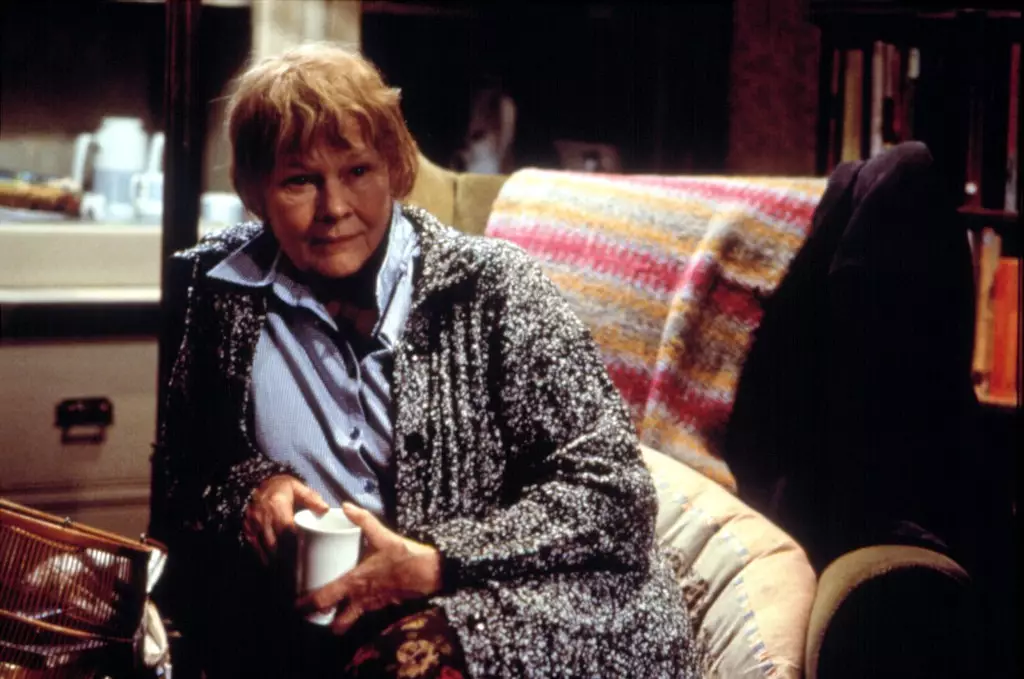Dame Judi Dench, a revered figure in the realm of acting, has once again transcended the silver screen, stepping into a pivotal role as an advocate for change. Her portrayal of Iris Murdoch in the 2001 film “Iris” not only earned her an Academy Award nomination but also drew attention to the harsh realities faced by those afflicted with Alzheimer’s disease. Today, she is using her influence to raise awareness about the pressing need for early and accurate diagnoses of dementia within the National Health Service (NHS). It is a cause that resonates deeply, not only for those who suffer from the disease but for society as a whole.
In the UK alone, nearly one million individuals are grappling with the devastating effects of dementia. Astonishingly, statistics reveal that one in three of these individuals lives without a proper diagnosis. This is not simply a procedural mishap; it is a tragedy that robs people of their dignity, their connections, and the future they envisioned. Especially in economically deprived areas, the wait for a diagnosis can extend to a year or more. This is unjust—an egregious oversight by a healthcare system ostensibly designed to care for the most vulnerable.
Turning Hope into Action
Alzheimer’s Research UK has launched an initiative aptly titled “Dementia Unseen,” which calls for immediate governmental action to address this crisis. Their proposals are simple yet transformative: ensure that GP referrals lead to specializations within six weeks and that a comprehensive diagnosis and treatment plan are established within 18 weeks. These measures could drastically change the landscape for people grappling with dementia, giving them the clarity and control they desperately need during grim times. Statistics predict that the number of dementia cases will soar by 43% by 2040—a figure that should galvanize our leaders into immediate action rather than complacency.
Dench’s impassioned remarks underscore the personal dimension of this struggle. “Dementia doesn’t just take away memories – it can take away identity, connection, and the future you thought you had,” she poignantly states. It is one thing to read dry statistics; it is a completely different experience to consider the imperative human stories behind those numbers. When families are left without answers, the emotional toll is incalculable, leading to fear, resentment, and isolation. The emotional terrain that patients and their families must navigate is fraught with uncertainty and sadness, often exacerbated by the lack of adequate support.
The Call for Rights and Recognition
Hilary Evans-Newton, Chief Executive of Alzheimer’s Research UK, aptly highlights that everyone with dementia deserves the right to know what condition affects them, to have it diagnosed in a timely manner, and to access treatments that may alleviate their suffering. As a society, we must recognize that these are not merely requests; they are fundamental rights that should be afforded to every individual living with this debilitating condition.
The delay in diagnosing Alzheimer’s and other dementias extends beyond personal distress; it reflects systemic failures within our NHS. How can we claim to be a compassionate society when so many people are left to languish in doubt, uncertainty, and fear? Thousands are left hanging in limbo, missing opportunities not just for treatment, but for a more meaningful engagement with life predicated on understanding and acceptance of their condition.
Time is of the Essence
The conversation ignited by Dench and Alzheimer’s Research UK is not just timely; it’s urgent. As our population ages, the necessity for action becomes even more pressing. We are not just talking about statistics; we are discussing lives, identities, and families shattered by something that, with timely intervention and diagnosis, could be better managed.
This cultural and bureaucratic inertia surrounding dementia must be dismantled. Waiting lists are not mere inconveniences—they are lifelines cut short. The power of a diagnosis goes beyond a label; it is a crucial step towards reclaiming agency in a life overshadowed by uncertainty. Effective policies must be put in place immediately, ensuring that the unseen crises faced by countless individuals are prioritized and addressed with the compassion and urgency they warrant. The time to act is now, not only for the ones suffering but for the fabric of our collective humanity.


Leave a Reply